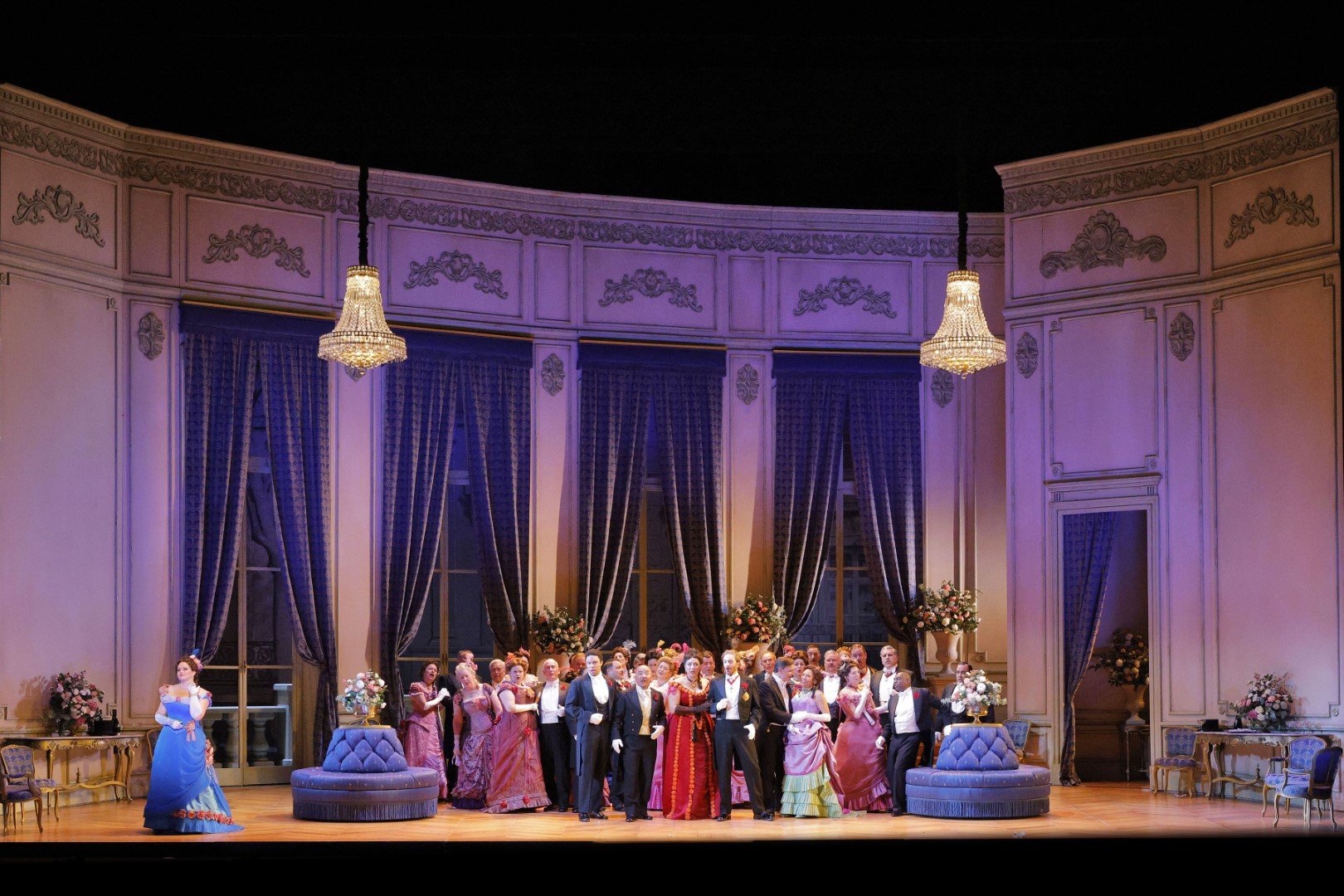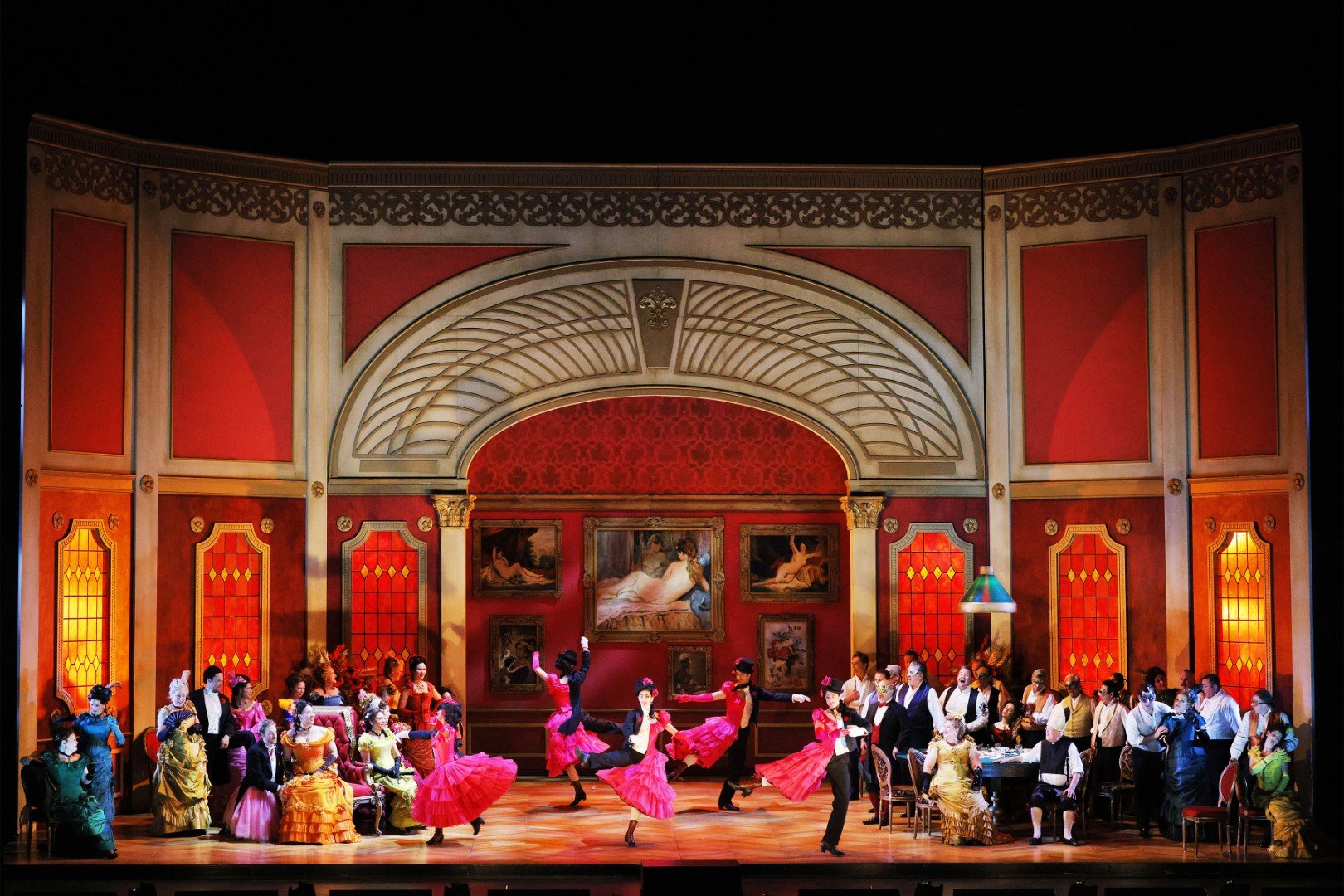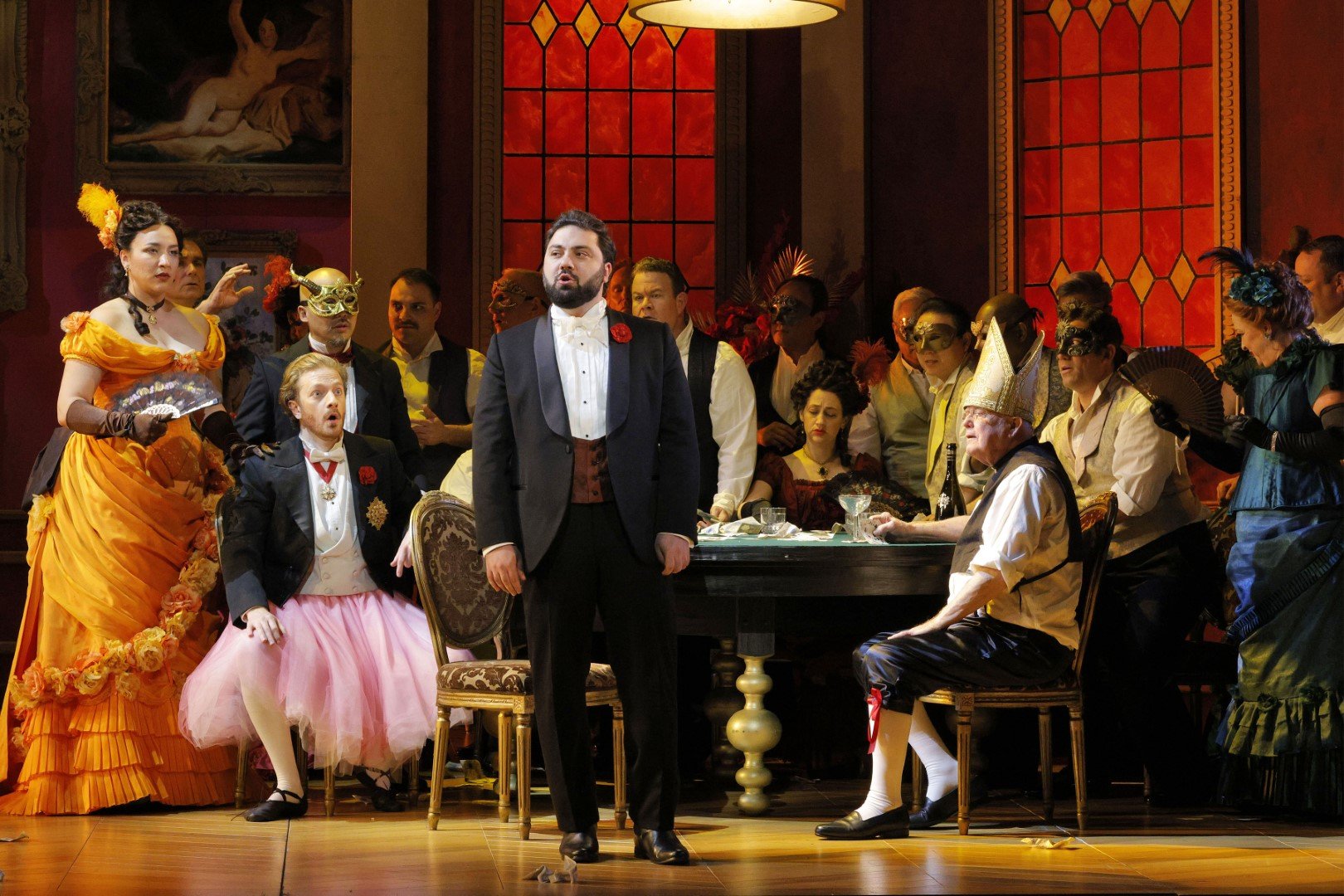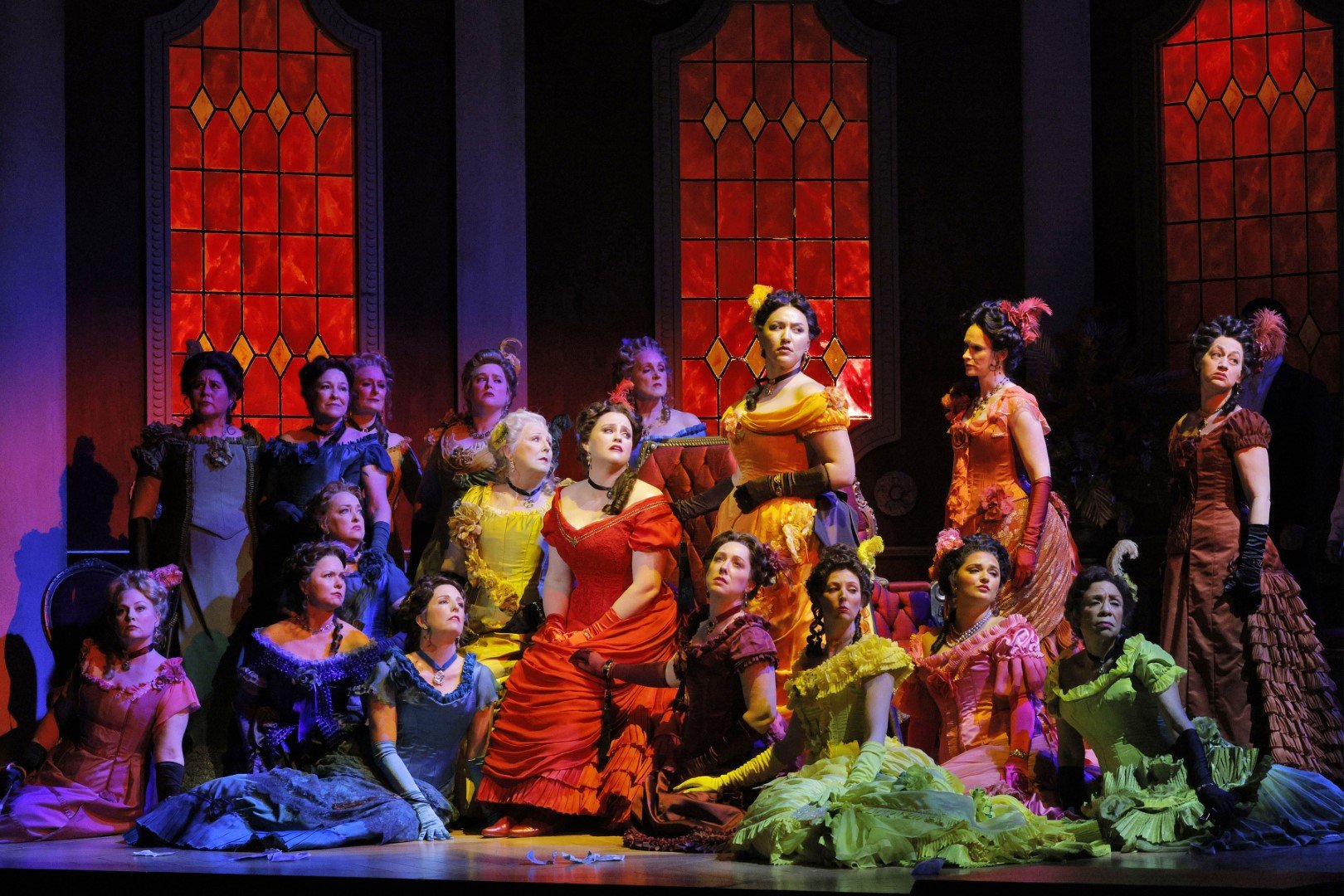LA Opera's 'Traviata' has fine singing, high drama and opulent staging
/By Truman C. Wang
4/6/2024; Updated 4/20/2024
Photo credit: Cory Weaver / LA Opera
In the dwindling numbers of repertory classics staged by American opera companies each season, the Los Angeles Opera counts only 4 old warhorses among its 9 total offerings in the 2023/24 season (in contrast to 6 classics in 2013/14, and a whopping 8 in 2000/01 – Domingo’s first season as General Manager). On a positive note, the two classics presented thus far have been both excellent. The third and newest, opened Saturday April 6, is La Traviata – a restaging of the 2022 San Francisco production, by director Shawna Lucey, in Robert Innes Hopkins’ opulent Belle Époque décor and costumes. Although the direction has oddities – Germont slaps Alfredo in act two and then promptly forgives him; someone other than père Germont slaps Alfredo at Flora’s party; Violetta and Alfredo making out in full view as act two curtain rises (a reminder of new ‘Intimacy Director’ on LA Opera’s payroll); the sexually non-binary dancers and a gentleman party guest in a pink tutu skirt – on the whole the characters’ emotions and actions were nicely conveyed.
This Traviata has musical freshness and dramatic urgency, for James Conlon, its conductor, is a musician with a sure feeling for unwritten but essential rubato – the ebb and flow of musical phrase which Verdi's music needs. A topnotch international cast shares his perception. Rachel Willis-Sørensen, the Violetta, is a vivid and passionate artist, with a gleaming presence, a voice both flexible and lustrous, and strong musical and dramatic instincts. Her “Sempre libera” was moving – the first verse sung with reckless determination, the second (after Alfredo’s declaration of love drifted into her song) as if with a breaking heart. Her Alfredo is a fairly good young tenor, Liparit Avetisyan, with a light, free-flowing, and well-focused voice and an earnest manner. He wasn’t quite aristocratic in style, however, and his phrasing was often choppy. As père Germont, Kihun Yoon’s gruff tone gradually melted into honey during the course of his duet with Violetta, genuinely moved by her sacrifice, and his two arias were vociferously and enthusiastically received.
The comprimari – and especially Sarah Saturnino, the Flora – were all of them young artists of merit (many came from the LA Opera's Domingo-Colburn-Stein Young Artist Program.) The orchestra played well. The preludes were movingly shaped. The chorus was outstanding; the words of its Spanish divertissement in Flora’s party could be heard loud and clear.
x x x
4/20/2024 UPDATE: I also attended the April 18 performance. Taking over pit duty from Music Director James Conlon for a night, the Iranian-Italian conductor Louis Lohraseb was polished and precise like his work in Barbiere last October. A consummate singers’ conductor, he showed a keen sense of Verdi style and drama. The act one orchestral crescendo climax accompanying Violetta’s cry of “Amami Alfredo” was genuinely heartbreaking. The L.A. Opera Orchestra playing under him, particularly the eloquent winds, was as fine as any Italian pit band I have heard in the opera houses of Bologna, Pesaro, and Reggio Emilia.
The excellent cast, as expected, had grown into their roles by this, third, show. Willis-Sørensen’s Violetta sounded even more splendid vocally; her “Addio del passato” was affectingly and subtly sung, and technically faultless. Avetisyan’s Alfredo, in a remarkable transformation from the opening night, sang with suave phrasing and the ardor of a young Giuseppe Di Stefano. At last, his act four duet with the dying Violetta now sounded vocally well-matched in tones and sentiments.
One thing I appreciate about this production is the instrumental preludes playing without director’s ‘visual aids’ in the form of miming or play-acting. Operas are often staged nowadays as if to help audiences in every way from having to do anything so exacting as to use their ears and listen in detail to what is being sung, said, and played. (In one Traviata I saw, the act four prelude was mimed by a dancer wearing a skeleton suit, waltzing and carrying Violetta to her deadbed.)
Three more shows remaining, on April 21, 24, 27.
Truman C. Wang is Editor-in-Chief of Classical Voice, whose articles have appeared in the Pasadena Star-News, San Gabriel Valley Tribune, other Southern California publications, as well as the Hawaiian Chinese Daily. He studied Integrative Biology and Music at U.C. Berkeley.






